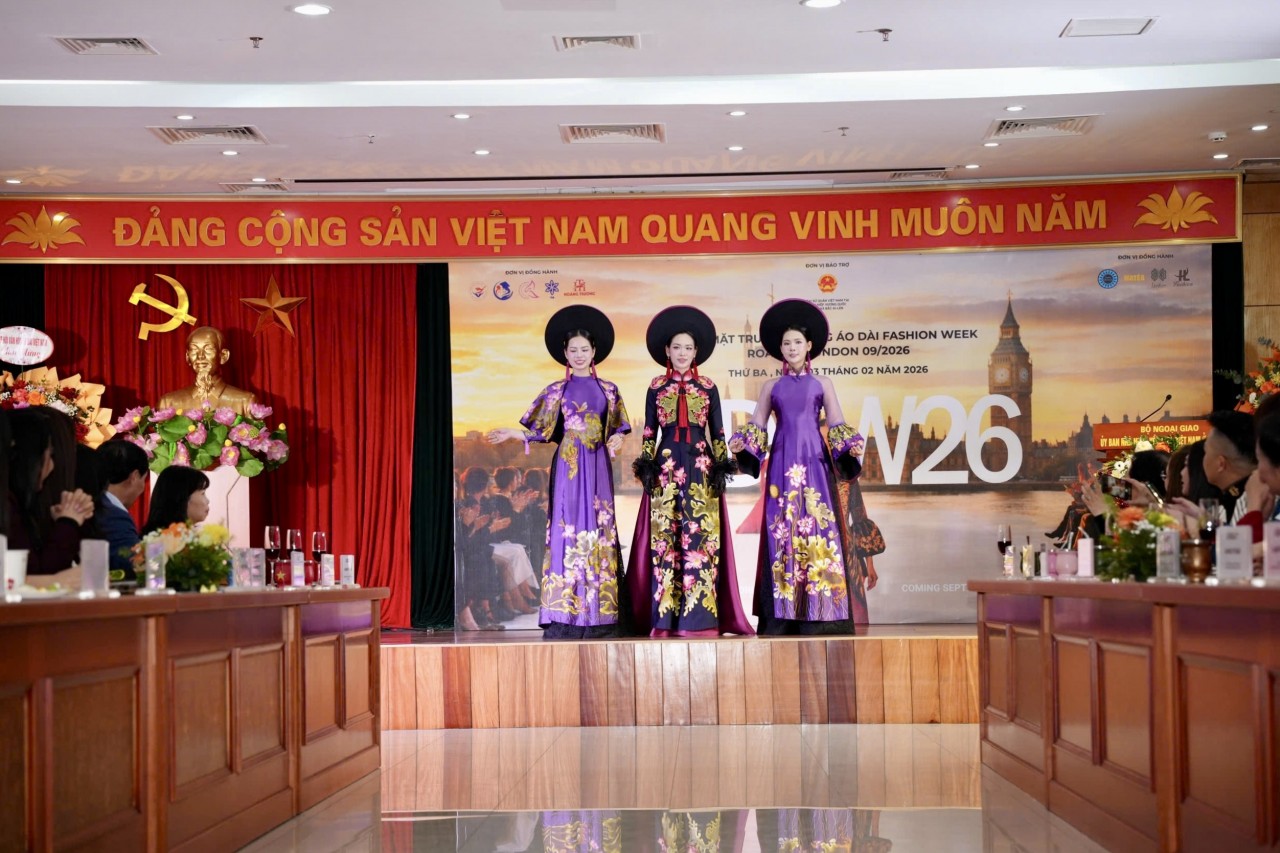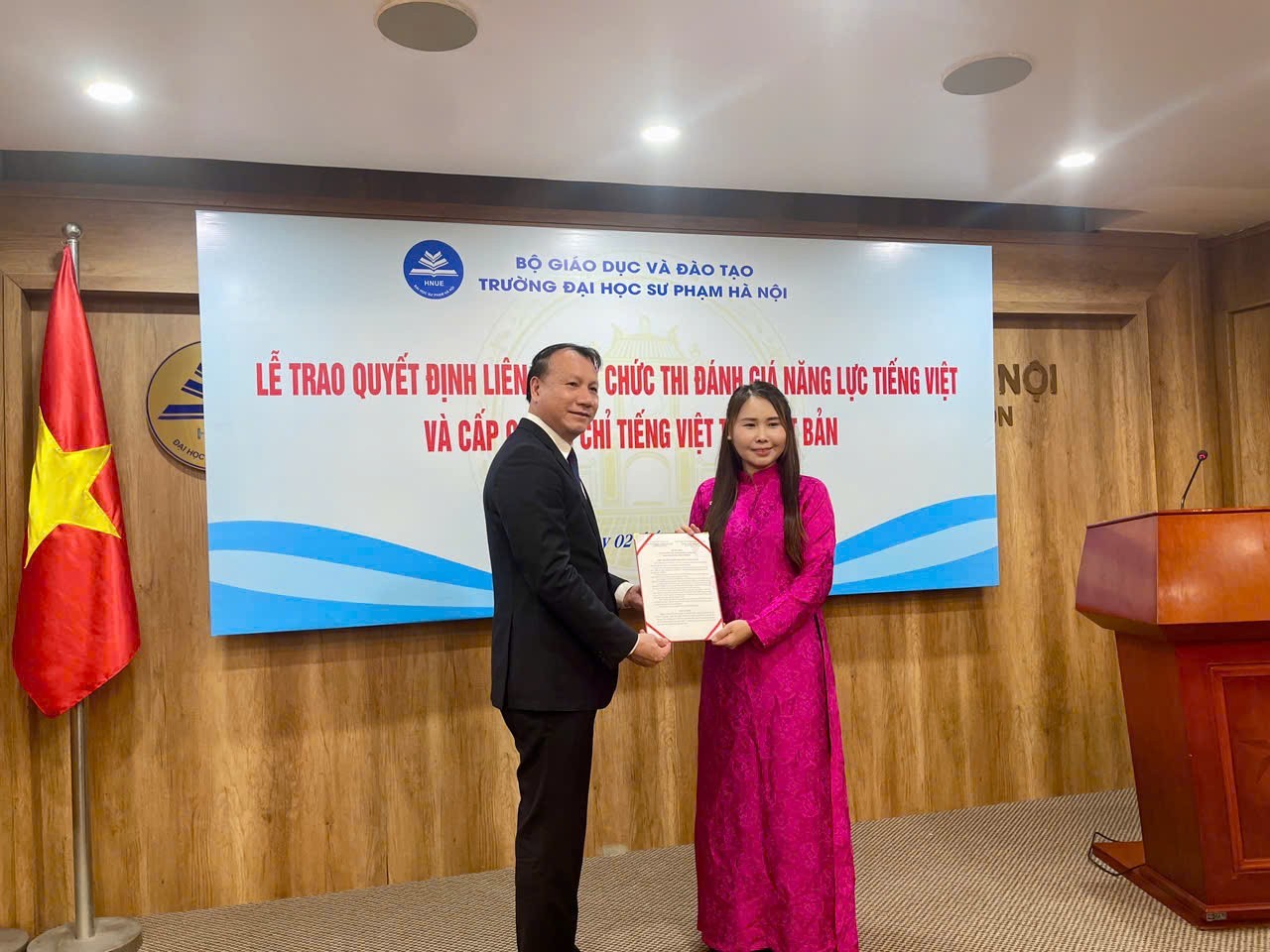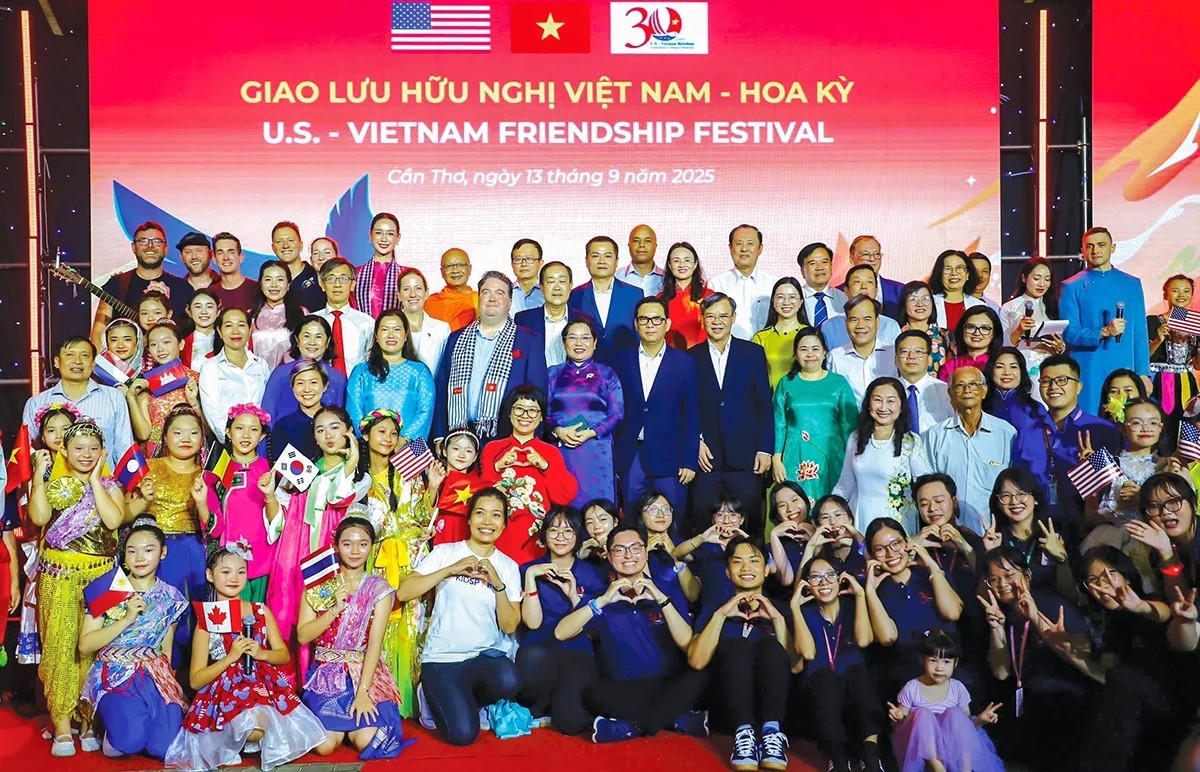Preserving Vietnamese Language through Music and Cuisine
| Vietnamese Nurtured from Worldwide Universities and Institutions | |
| Promoting Vietnamese at Leading American Universities |
The “Tung - Cheng” Classroom
On a morning at Ca’ Foscari University in Venice, Italy, the sounds of “tung - cheng” echo through the classroom of lecturer Le Thi Bich Huong, a native of Phu Tho Province. She beats the drum and gently shakes the cymbals: “Today, we’ll learn tones through sounds. This is the drum - tung, and this is the cymbal - cheng. Which sound is lower? Which is higher?” The class bursts into laughter before focusing intently on her lesson.
For Huong, Vietnamese is a language rich in musicality. Its six tones (sac, huyen, hoi, nga, nang, and khong dau) are like six musical notes. In her seven years of teaching Vietnamese in Italy, she has constantly searched for ways to help students overcome the challenge of tones.
“My students often find the tones too similar. I had to think of a way for them to hear the differences through music, while still preserving the nuances of Vietnamese,” she explained.
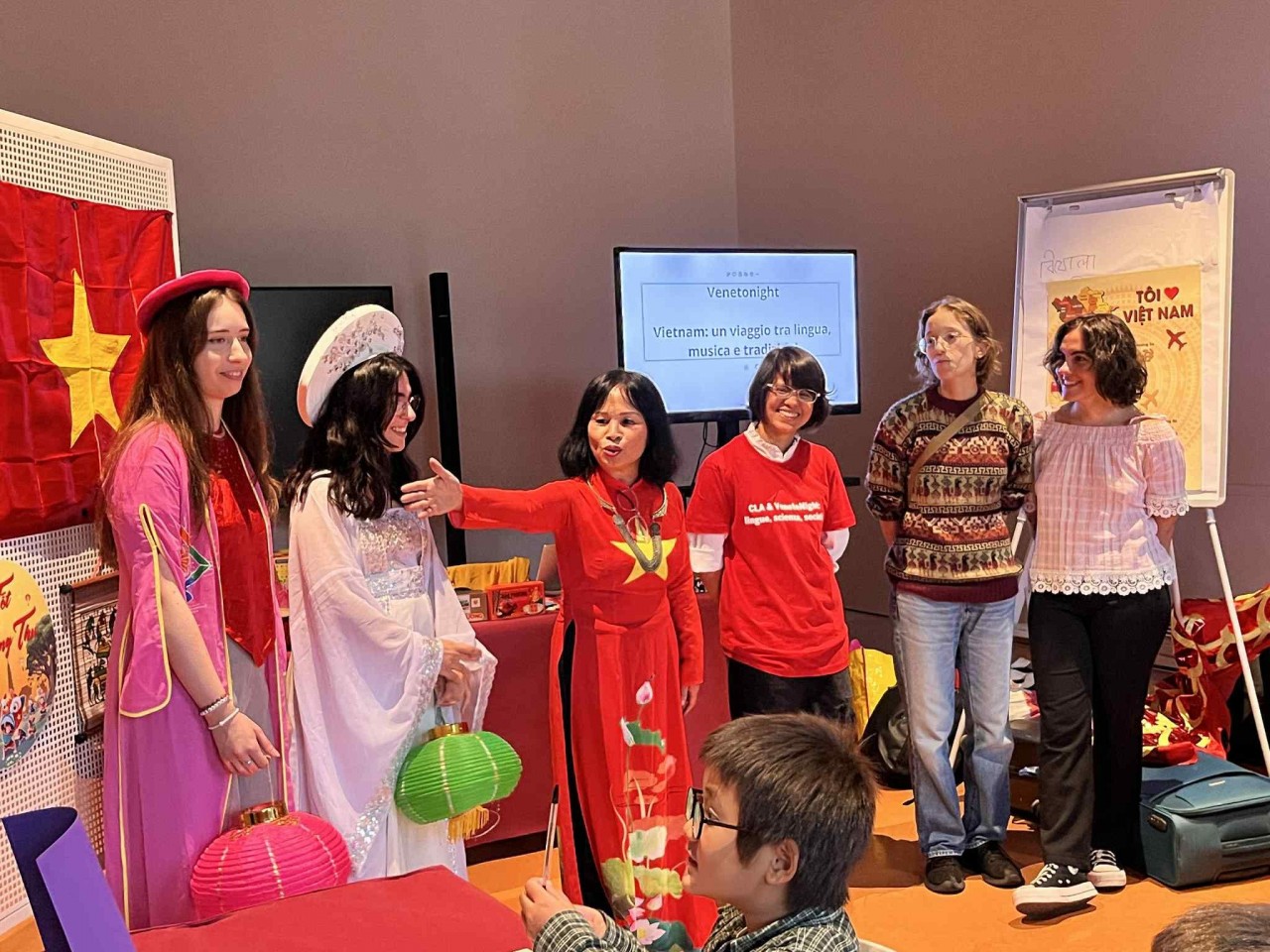 |
| Le Thi Bich Huong (third from left) and her students at Ca’ Foscari University participate in the workshop “Vietnam: A Journey through Language, Music, and Tradition”, September 2025. |
From that idea, she began bringing Vietnamese traditional instruments into her lessons - a lively approach that connects language with culture.
“The sound of instruments helps me remember how the tones rise and fall in Vietnamese,” said student Giulio Perini. His classmate Marinunzia Cimarosa added, “This way of learning is both interesting and effective. Using musical instruments in class always makes us happy.”
Her lessons often end with laughter. “My students can correct themselves when they make mistakes. I want to create a lighthearted and enjoyable learning environment for them,” she shared.
Huong began teaching Vietnamese in 2005 in Brazil, where she was then Director of Italy-Brazil cooperation projects. Having studied several foreign languages - Russian, French, Italian, and English, she regards returning to Vietnamese as a journey back to her roots. Later, she moved to Italy, teaching for the Italy-Vietnam Cultural Bridge Association before being recruited by Ca’ Foscari University in 2018, when Vietnamese was still a new subject without an Italian-language textbook.
“The school said that if there weren’t enough students, the class would be closed. Vietnamese is difficult, the teaching hours are few, and the university is four hours from my home. There were moments when I felt lost. But my mother always told me, ‘I hope to see you shine on the lecture stage.’ Her wish - to preserve and spread the Vietnamese language - has given me strength to continue,” Huong recalled.
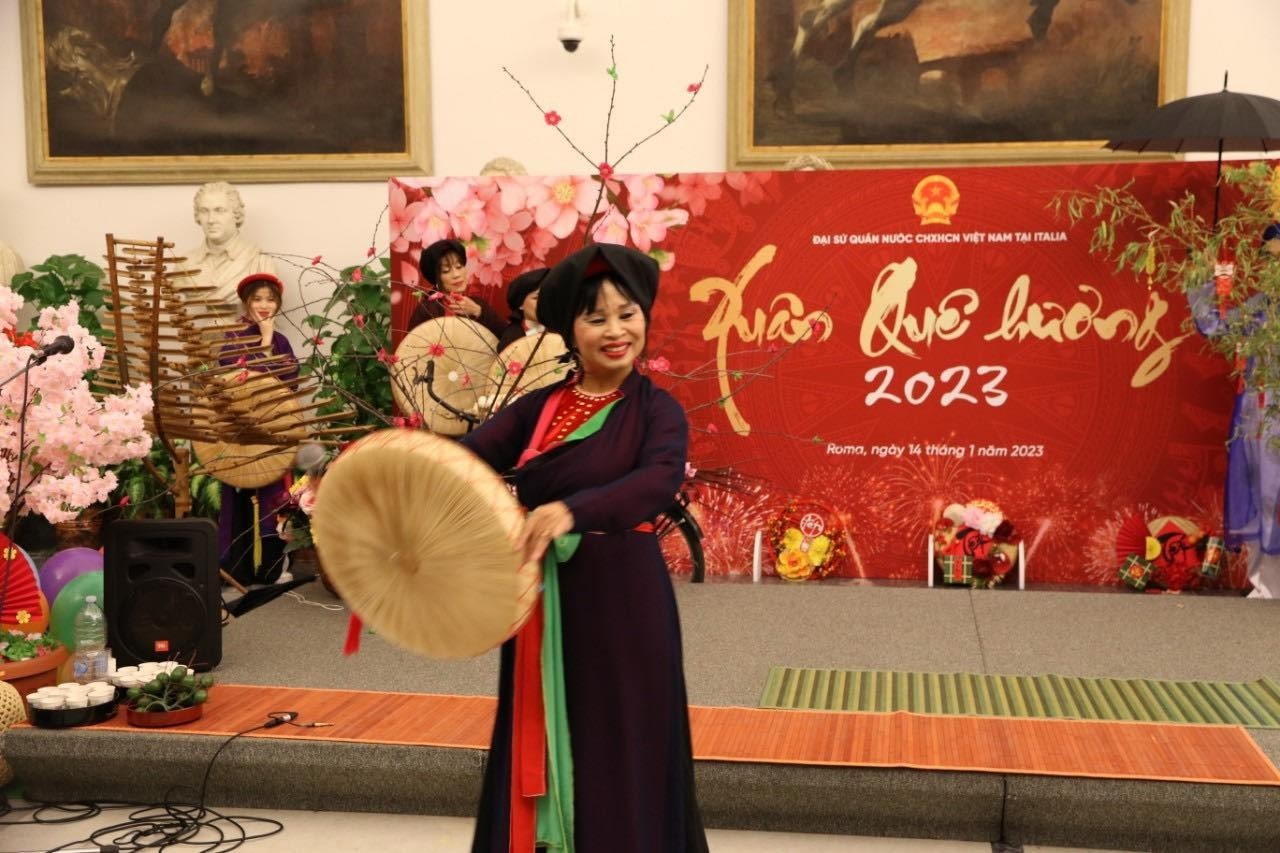 |
| Le Thi Bich Huong performs Quan ho folk songs at the ‘Homeland Spring 2023’ program organized by the Vietnamese Embassy in Italy. |
To make classes more engaging, she combines phonetics, culture, and music, encouraging students to write essays, sing folk songs, act in plays, cook Vietnamese dishes, and explore customs. “They learn to use chopsticks, make spring rolls, and then ask, ‘Teacher, can you teach us to sing Quan ho?’” she said, smiling.
“Teaching Vietnamese helps Italian students better understand Vietnam. Language can convey and open doors to mutual understanding between cultures,” she emphasized. Huong believes that teaching methods integrating music, cuisine, folktales, and festivals can also be applied to children of Vietnamese descent born abroad, making the Vietnamese language feel warmer, more familiar, and closer to their hearts.
Speaking Vietnamese through Traditional Dishes
While Huong’s classroom in Italy uses music to “hear” Vietnamese tones, in many overseas Vietnamese families, the language is nurtured through flavors, aromas, and stories told in the kitchen. The idea has been brought to life by Viet Happiness Station - “The Happiness Station - Touching Emotions”, a community initiative founded by Kieu Thi Bich Huong in Rotselaar, Belgium, together with a group of Vietnamese friends living across Europe.
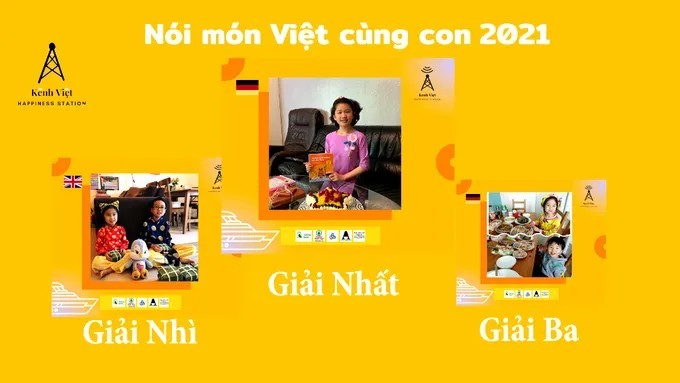 |
| Award Ceremony of the Contest “Speaking Vietnamese through Dishes with Children 2021.” |
In 2021, Viet Happiness Station launched its first contest, “Speaking Vietnamese through Dishes with Children”, which received enthusiastic participation from overseas Vietnamese families and children born and raised abroad. Just three days after the contest was announced, two sisters - Tong Khanh Linh (15) and Tong My Linh (12) in Australia, submitted the first video introducing banh troi nuoc (sweet glutinous rice balls). The project was completed during Melbourne’s extended COVID-19 lockdown.
Their mother, Nguyen Thi Thanh Huong, shared that her daughters wrote their own script, prepared the Vietnamese narration, dressed in áo dài, and eagerly filmed the video - an experience that deepened their love for their homeland and pride in Vietnamese culture.
The organizing committee selected 19 videos for the final round. In these entries, the children’s Vietnamese retained their regional accents, genuine expressions, and heartfelt emotions - like Lynh Mai Moneyn (14) from Belgium, who said with longing:
“When I get sick, my mom makes pho for me. She says pho is good for sick people. The first thing I want to do when I go back to Vietnam is to eat pho. I just can’t wait!”
Many families treated the process of making their videos as a “home-based Vietnamese lesson”: mothers prepared ingredients while chatting in Vietnamese with their children, fathers filmed, and the kids learned new vocabulary and sentence structures. In Belgium, two brothers - Zeno Hung Anh Caroen (10) and Ilias Hoang Anh Caroen (7) - were guided by their mother through each step of wrapping banh chung (square sticky rice cakes), with every movement becoming a small Vietnamese language lesson.
The judges evaluated not only the culinary aspects but also the linguistic value and the sense of family connection expressed in each video. The results demonstrated that even a small and simple contest could spark the habit of using the mother tongue among children and promote cultural preservation within the Vietnamese community abroad.
Building on the success of that first competition, Viet Happiness Station has since evolved into a podcast and video channel dedicated to Vietnamese culture and literature, with over 1,700 followers on its fan page. The platform has launched various contests and projects such as “Travelling with Children 2022”, “My Podcast - My Story 2023”, and “Vietnamese Bookshelf in Overseas Vietnamese Restaurants”. It also maintains a range of regular series, including "Vietnamese Abroad - Untold Stories", "Our Life in a Foreign Land", "Feels Like Yesterday", "Oh My God!", and "Listen and Reflect".
Kieu Thi Bich Huong shared: “From the very first podcasts, we set out to preserve and nurture the mother tongue through the voices of Vietnamese and Vietnamese-origin people around the world, encouraging not only children but also foreign spouses to cultivate their love for Vietnamese on the fertile field of Viet Happiness Station.”
The tireless efforts of thousands of non-professional teachers, overseas volunteers, and Vietnamese parents continue to play a vital role in preserving and spreading the Vietnamese language among second- and third-generation Vietnamese communities abroad.
In today’s context of global integration, Vietnamese cannot stand apart from the flow of linguistic exchange. Yet, these dedicated individuals remain the threads, the anchors, the enduring red strings ensuring that the Vietnamese language will never fade away.
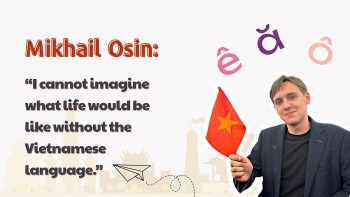 | Mikhail Osin: “I cannot imagine what life would be like without Vietnamese language.” On an autumn afternoon in Moscow, in a small room of the Institute of Asian and African Studies at Moscow State University (MGU), third-year student ... |
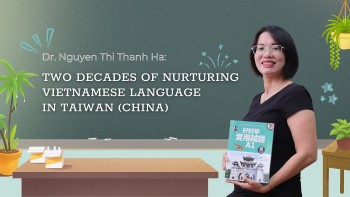 | Dr. Nguyen Thi Thanh Ha: Two Decades of Nurturing Vietnamese Language in Taiwan (China) Amid the modern rhythm of life in Taiwan (China), every morning, residents of a small alley in Tainan City have grown familiar with the sight ... |
Recommended
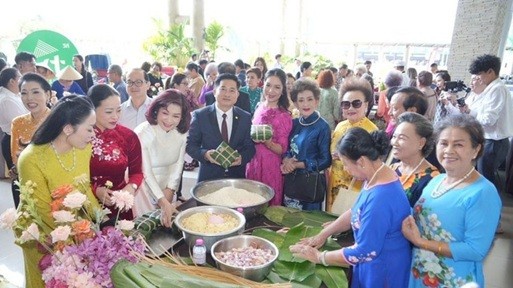 Overseas Vietnamese
Overseas Vietnamese
Vietnamese Expatriates in Thailand, Germany, and Russia celebrate Tet with Deep Affection Toward Homeland
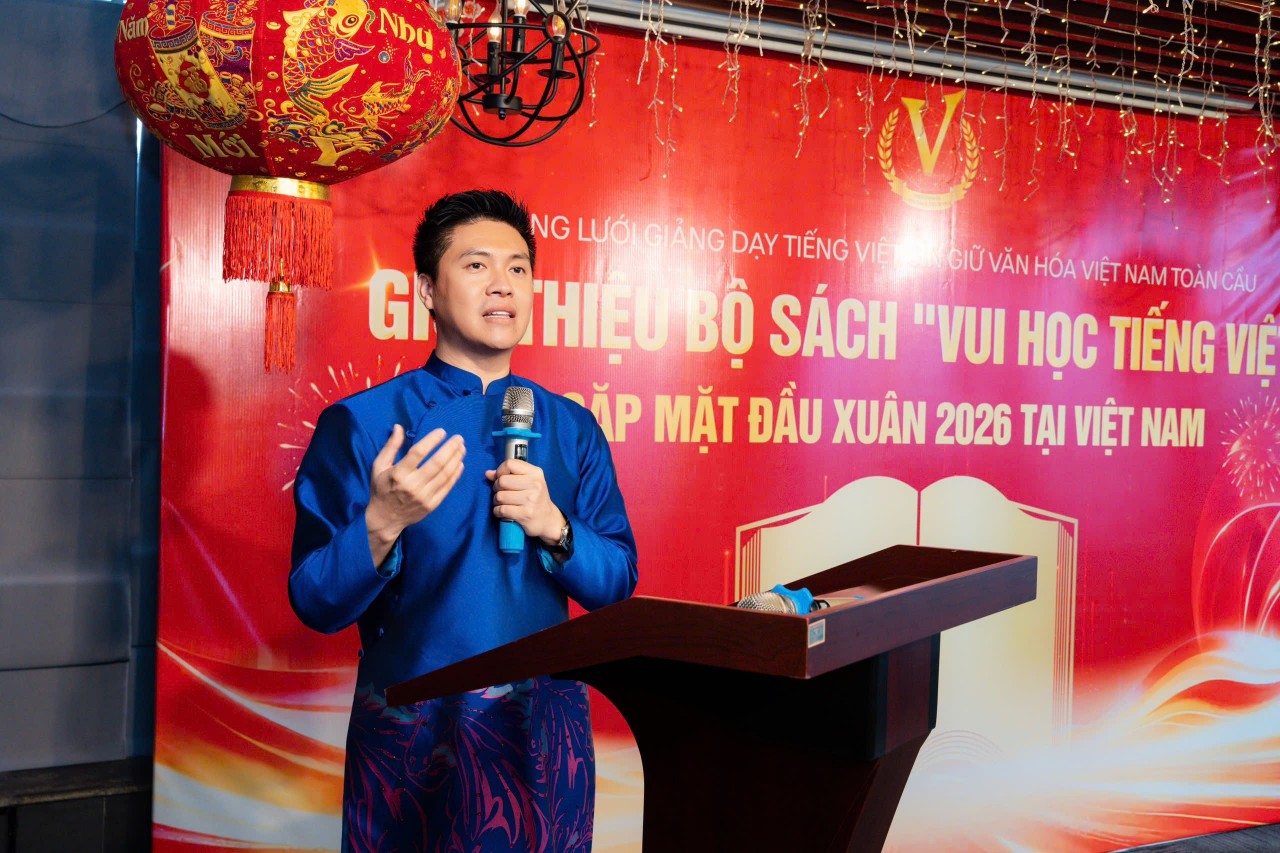 Overseas Vietnamese
Overseas Vietnamese
Introducing the “Fun Learning Vietnamese” Book Series for Overseas Vietnamese
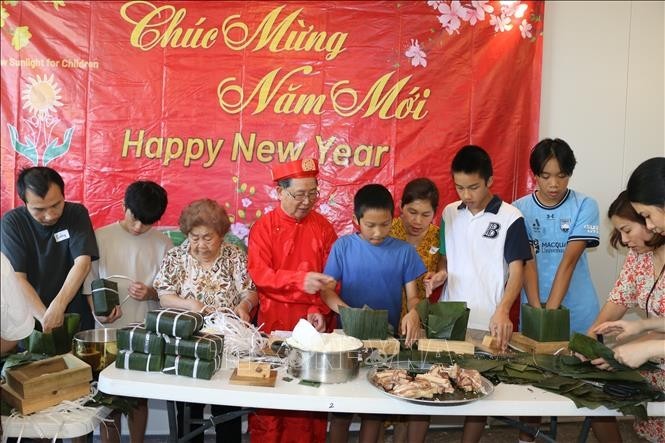 Overseas Vietnamese
Overseas Vietnamese
Vietnamese Community in Australia Wraps Banh Chung to Welcome Tet
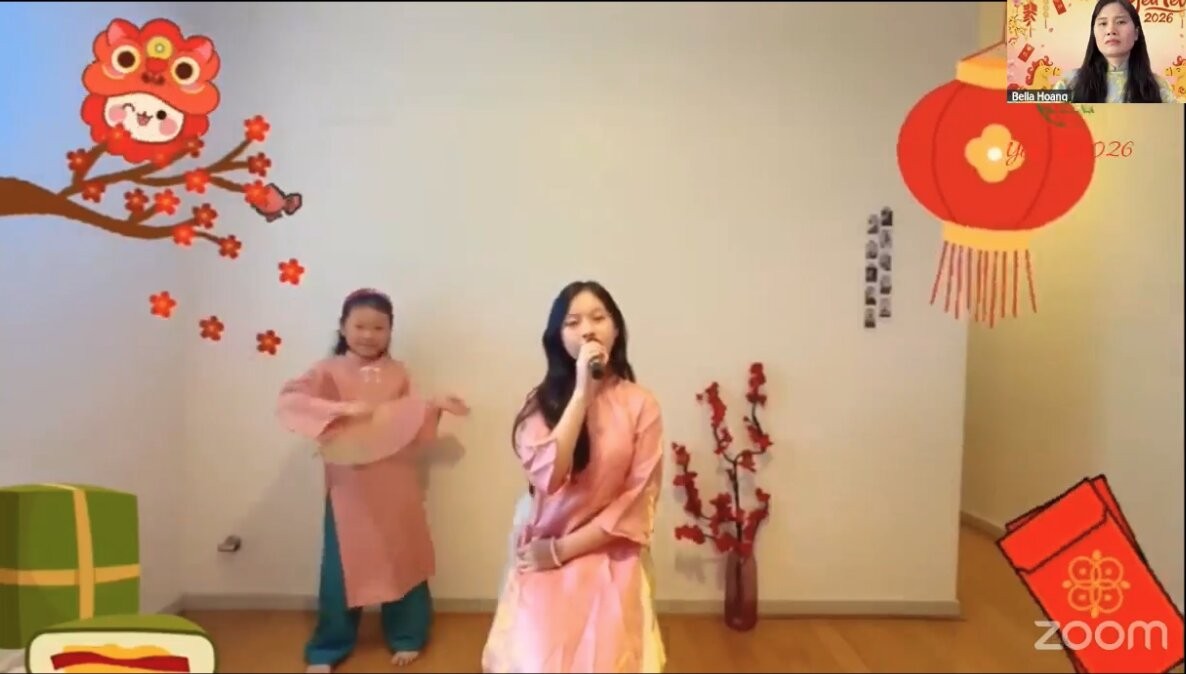 Overseas Vietnamese
Overseas Vietnamese
Gala Yeu Tet 2026 Connects Overseas Vietnamese Children from Many Countries
Popular article
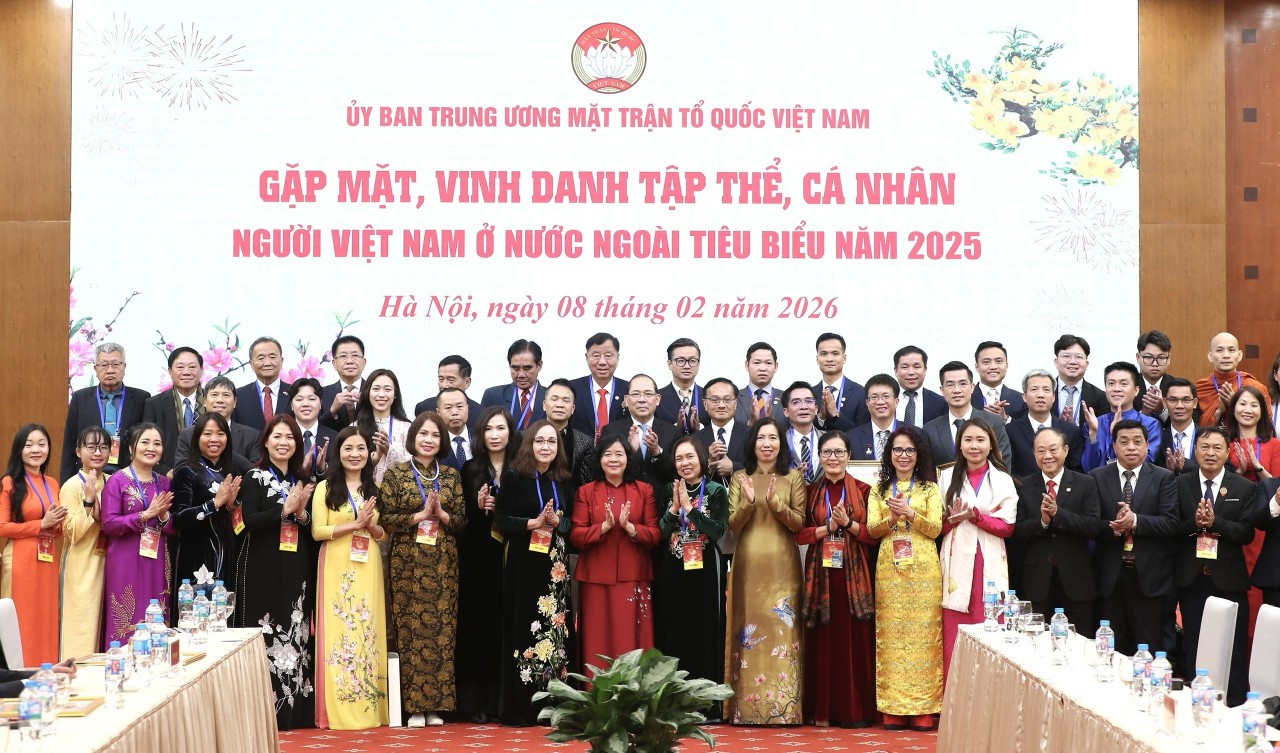 Overseas Vietnamese
Overseas Vietnamese
Vietnam Calls on Overseas Vietnamese for Breakthrough Ideas and Development Initiatives
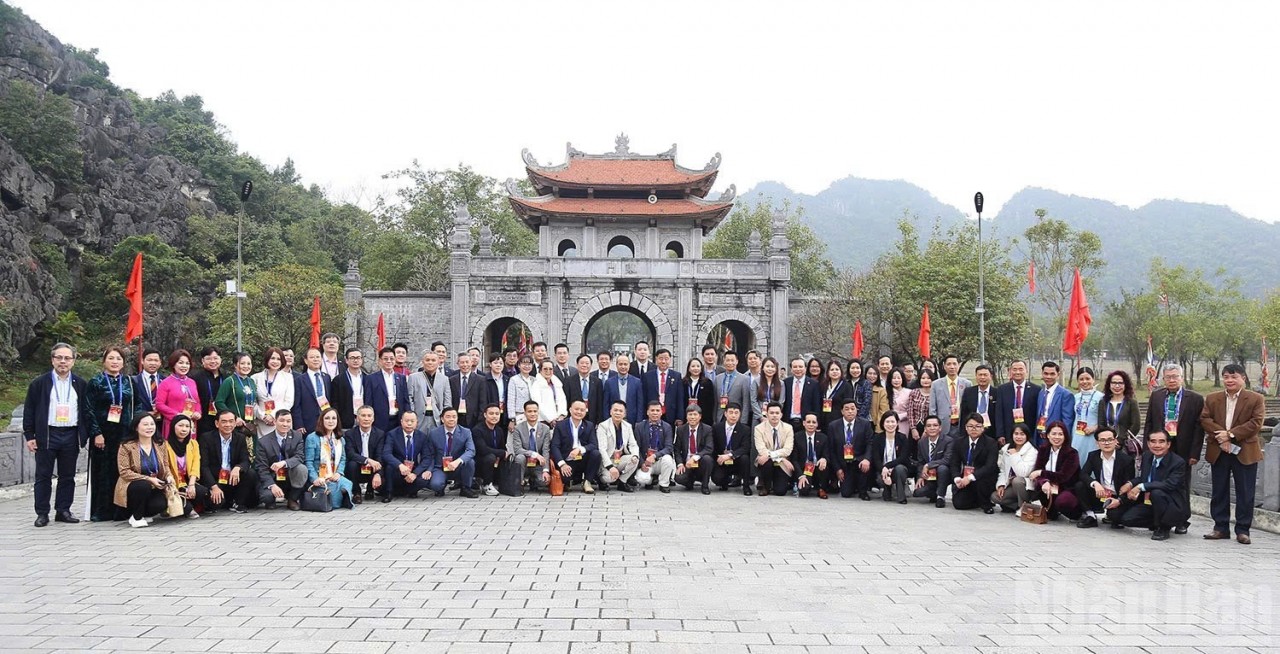 Overseas Vietnamese
Overseas Vietnamese
Connecting Overseas Vietnamese with Their Roots
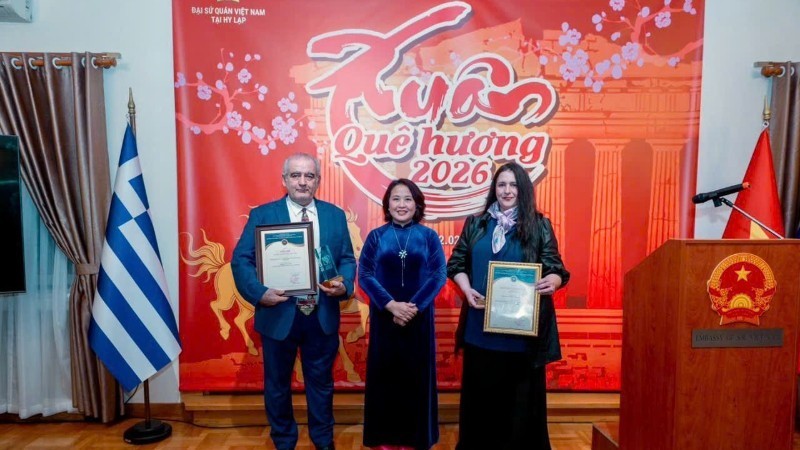 Overseas Vietnamese
Overseas Vietnamese
The Vietnamese Community in Greece Celebrates the Lunar New Year
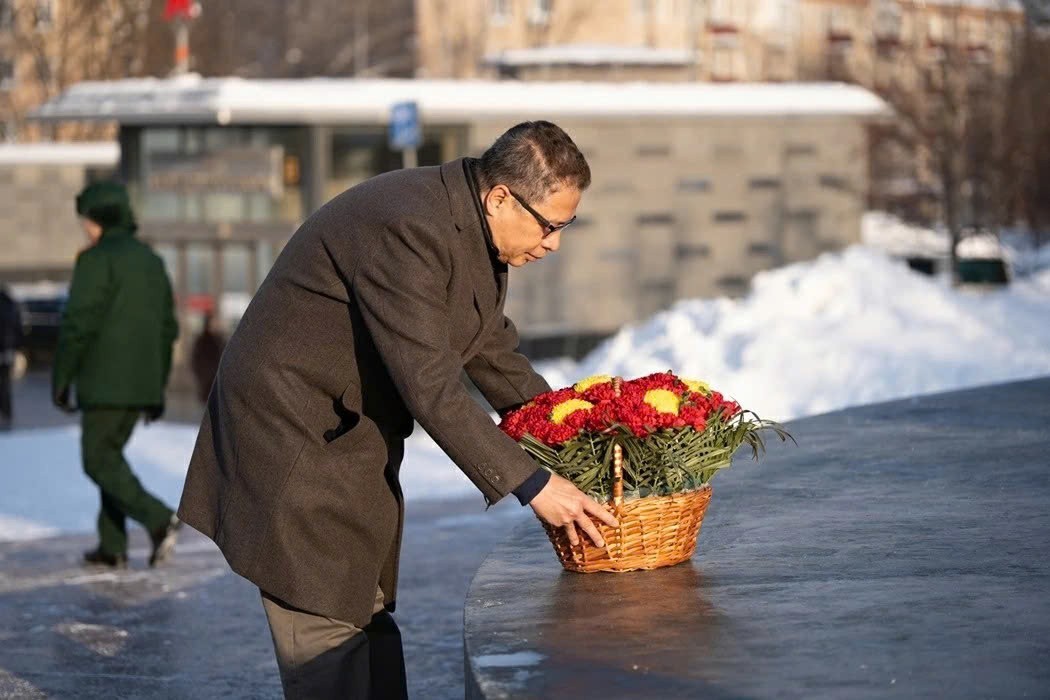 Overseas Vietnamese
Overseas Vietnamese




